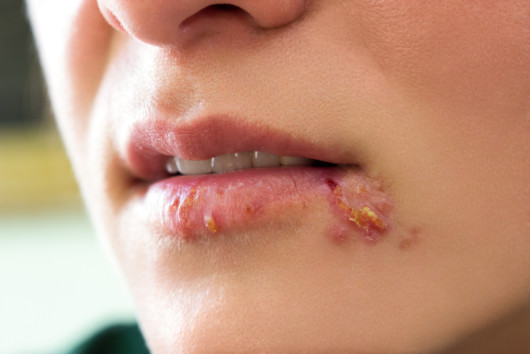You’re eating, drinking, and doing other stuff as usual. Suddenly, you notice a slight tingling or stinging sensation somewhere inside your mouth.
Then, you wake up with irritating, uncomfortable bumps that make doing a lot of the things you do with your mouth feel like a chore.
What you’re experiencing are mouth sores. These are lesions that appear in the soft tissues of the mouth along your cheeks, tongue, gums, lips, and the roof or floor of your mouth. They may look purple, red, yellow, or white. Depending on their size and severity, they can make simple tasks like chewing and breathing difficult.
There are many reasons why mouth sores occur. But there are also many ways to treat them. You can check out further resources to learn how certain eating choices can help remove them faster. Of course, getting your mouth sores checked out by a doctor is the best way to deal with them.
While you’re here, you should learn how the different types of mouth sores occur so you can avoid them as well as find out how to handle them.
The most common ones are:
-
Canker Sores
Canker sores are small oval-shaped lesions in your mouth that appear yellow, grey, or white. In most cases, they’re surrounded by a painful red halo that gets irritated most of the time. They are non-contagious, considered harmless, and can heal without medication within one or two weeks of their occurrence.
But if you’re experiencing persistent canker sores, it could be due to an underlying medical condition like HIV, vitamin deficiency, or celiac disease. In that case, you need to get yourself checked.
Canker sores may appear because of things like biting the soft tissues of your mouth, sensitivity, allergies, or burns. Other conditions that cause canker sores include:
- Psychological or emotional stress
- Smoking
- Toxins in drinking water
- Vitamin B12 deficiency
- Intestinal conditions such as irritable bowel syndrome and Crohn’s disease
- Hormonal imbalance (especially during menstruation)
- Weak immune system
If your canker sores are of the persistent kind, your doctor may recommend the following:
- Antibiotics such as doxycycline
- Acetaminophen for pain
- Drinking more fluids
- Special mouthwashes with dexamethasone, chlorhexidine, or hydrogen peroxide
- Topical anesthetics such as benzocaine
- Fixing your oral hygiene
Some tweaks in your routine can help you heal from canker sores faster. For example, you can avoid spicy foods to keep your mouth from getting irritated. Also, you can gargle with salt water or mouthwash to ease the pain. But a better oral hygiene routine is usually enough to deal with them.
-
Gingivostomatitis
This is a condition that creates painful, tender sores on your gums or the insides of your cheeks. They’re gray or yellow with a reddish center, accompanied by mild, flu-like symptoms. Many children suffering from gingivostomatitis may find it hard to eat from the pain.
It’s usually caused by a bacterial infection. Poor oral hygiene practices, such as failing to brush or floss your teeth regularly, make you more vulnerable to catching it.
To treat it, your doctor may prescribe antibiotics. The affected areas will also have to be debrided or cleaned with antibacterial mouthwash. Over-the-counter drugs like ibuprofen or acetaminophen can also reduce pain and discomfort.
Natural home remedies also exist to provide some relief. You can try drinking coconut water, gargling your mouth with coconut milk, chewing holy basil leaves, or applying honey and turmeric to the affected area. But don’t use honey for kids below one year of age.
-
Cold Sores
These refer to red or dark fluid-filled blisters that appear on the lips or near the mouth. Before they pop up, you may feel a slight burning or tingling in the affected area. They’re contagious and may spread through sharing cosmetics, food, and kisses.
Cold sores are caused by the herpes simplex virus and come with flu-like symptoms, such as swollen lymph nodes, body aches, and low fever.
You’re likely to experience cold sores if you injured or scoured your lips, have been exposed to the sun for too long, have a weak immune system, or experience a lot of stress.
If you have them, your doctor may recommend:
- Anti-inflammatory ointments to alleviate symptoms
- Antiviral oral medications such as valacyclovir, famciclovir, and acyclovir
- Cleaning the infected area and keeping it dry
Cold sores should heal within two to three weeks. You may need a thorough medical examination if they persist.

Stay Protected
Mouth sores can be painful and bothersome. While most will heal on their own, you may need to visit your doctor if they don’t subside after days of a couple of weeks of treatment. Of course, this is proof of the importance of practicing proper oral hygiene. Check your routine and fix it to avoid problems like these.



